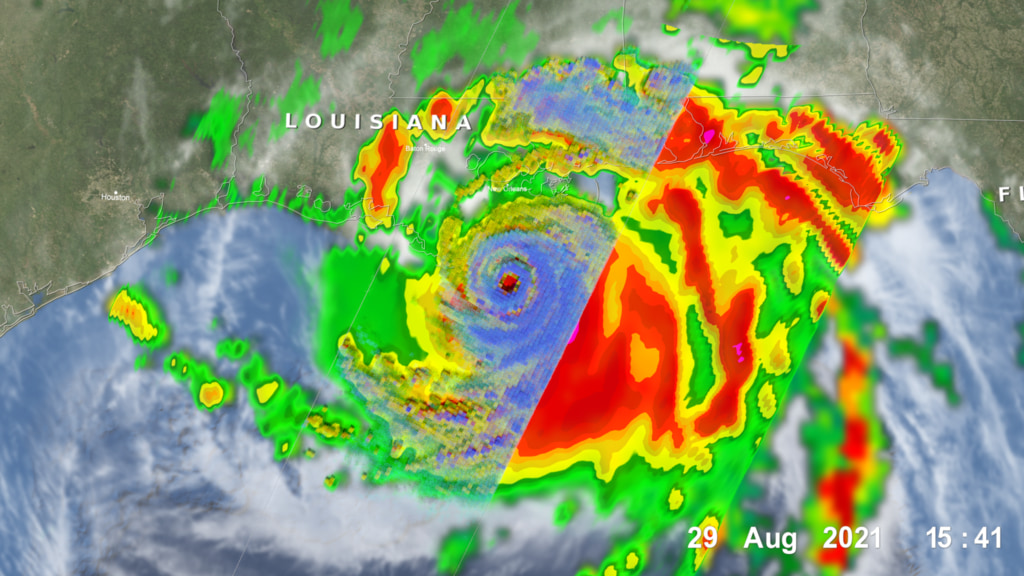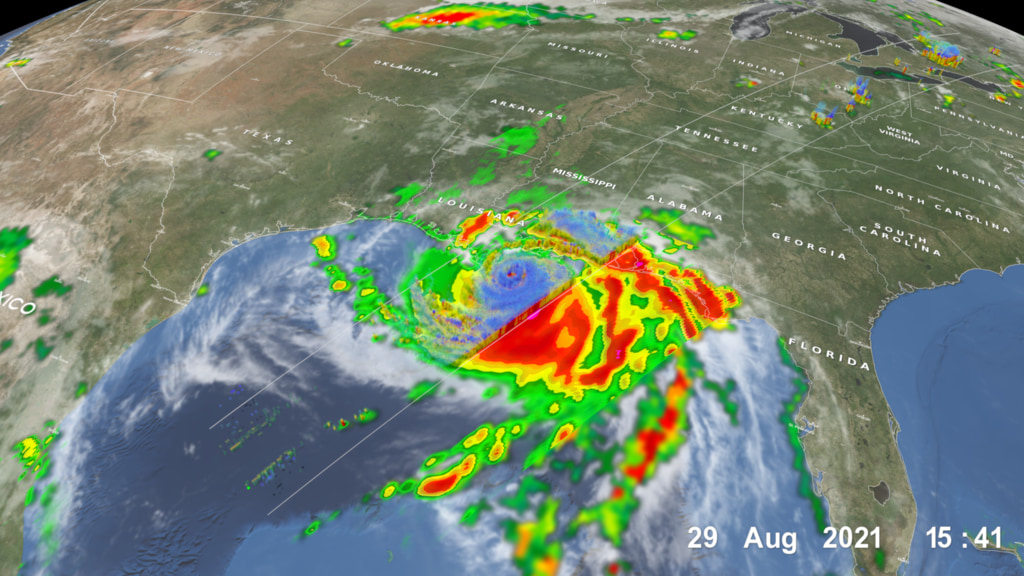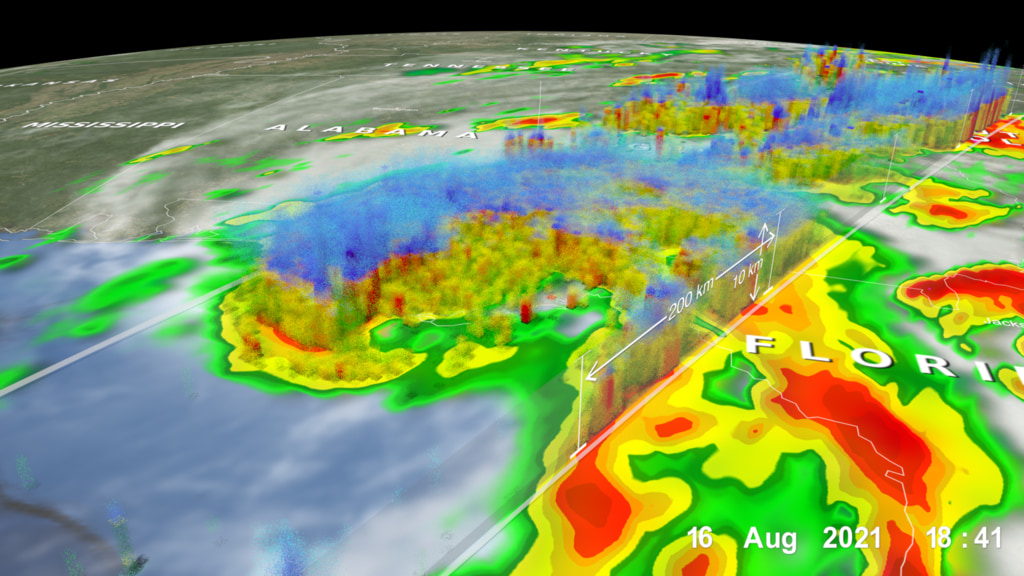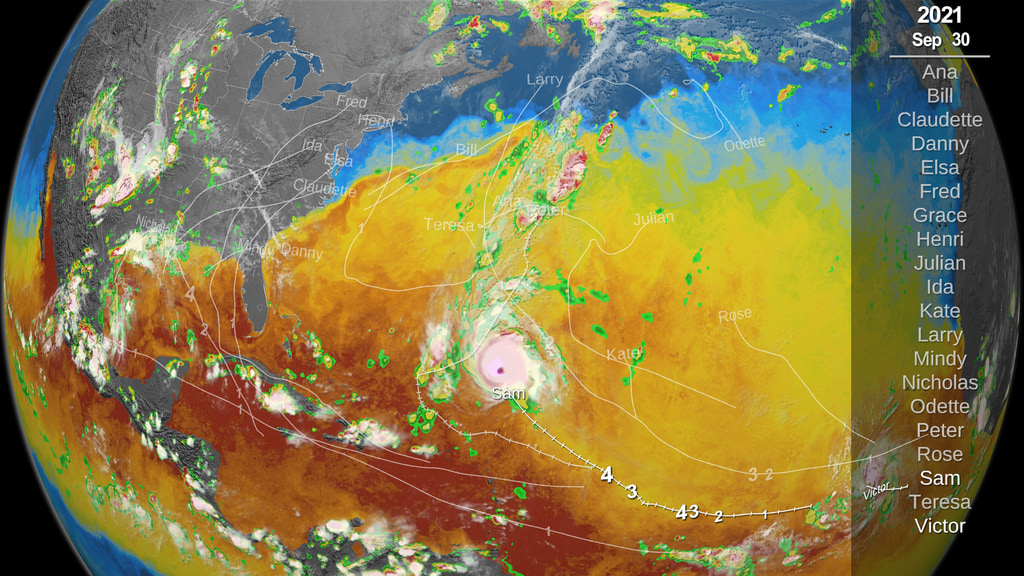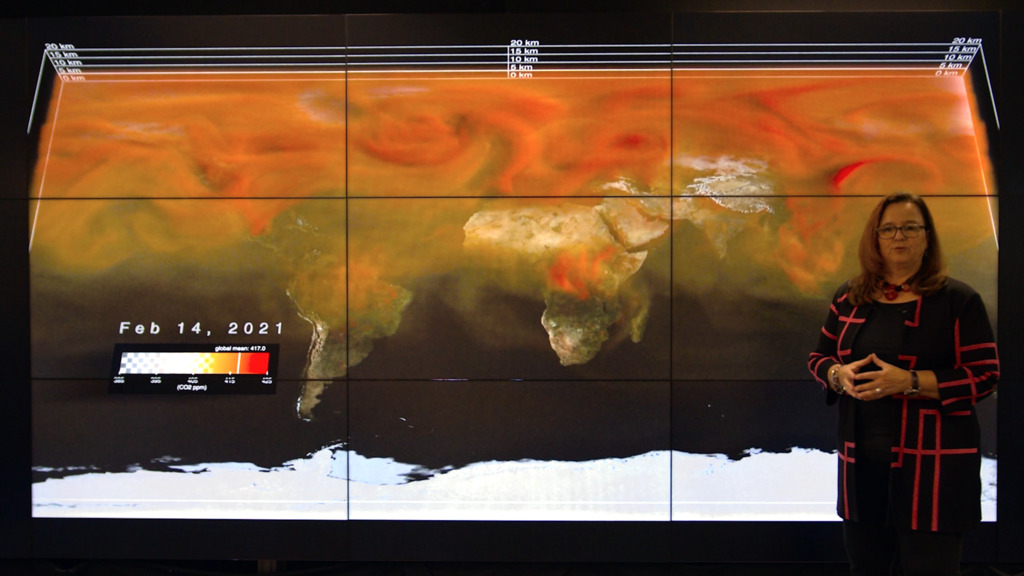Complete 2021 Hurricane Season
This special version of the 2021 Hurricane Season data visualization uses all the below layers to show the entire 2021 Hurricane Season, but elements of it were sped up in post production to accelerate the data when no hurricanes are present. This provides the viewer with a more compact experience that focuses exclusively on the hurricanes.
This visualization shows the hurricanes and tropical storms of 2021 as seen by NASA’s Integrated Multi-satellitE Retrievals for GPM (IMERG) - a data product combining precipitation observations from infrared and microwave satellite sensors united by the GPM Core Observatory. IMERG provides near real-time half-hourly precipitation estimates at ~10km resolution for the entire globe, helping researchers better understand Earth’s water cycle and extreme weather events, with applications for disaster management, tracking disease, resource management, energy production and food security. IMERG rain rates (in mm/hr) are laid under infrared cloud data from the NOAA Climate Prediction Center (CPC) Cloud Composite dataset together with storm tracks from the NOAA National Hurricane Center (NHC) Automated Tropical Cyclone Forecasting (ATCF) model. Sea surface temperatures (SST) are also shown over the oceans, derived from the NASA Multi-sensor Ultra-high Resolution (MUR) dataset, which combines data from multiple geostationary and orbiting satellites. Sea surface temperatures play an important role in hurricane formation and development, with warmer temperatures linked to more intense storms.
This data visualization shows the complete 2021 hurricane season beginning on May 1, 2021 throught November 30, 2021. Time moves at a constant rate throughout this visualization showing both the hurricanes and the down times between the hurricanes. After the last hurricane of the season, Wanda, is displayed, we dissolve in all the storms for the 2021 Hurricane season to show all their paths and strengths together on one map.
Hurricane tracks for the 2021 season covering May 1 through November 30, 2021 with time moving at a constant rate.
Cloud composite covering May 1 through November 30, 2021 with time moving at a constant rate.
Surface Precipitation from May 1 through November 30, 2021 with time moving at a constant rate. Areas in green and yellow are areas of relatively light rain. Oranges and reds depict areas of intense rainfall.

Color bar for frozen precipitation rates (ie, snow rates). Shades of cyan represent low amounts of frozen precipitation, whereas shades of purple represent high amounts of precipitation.

Color bar for liquid precipitation rates (ie, rain rates). Shades of green represent low amounts of liquid precipitation, whereas shades of red represent high amounts of precipitation.
Sea Surface Temperature (SST) from May 1 through November 30, 2021 with time moving at a constant rate.

Sea Surface Temperature colorbar focusing primarily on temperatures between 20 degrees Celsius to 30 Celsius.

Final still frame overlay showing all the hurricanes of the 2021 season together.
Credits
Please give credit for this item to:
NASA/Goddard Space Flight Center Scientific Visualization Studio
Additional credits:
Storm tracks and strengths courtesy of NOAA's National Weather Service.
Blue Marble MODIS data composite courtesy of the MODIS Science Team NASA Goddard Space Flight Center and the NASA Earth Observatory.
Music created and produced by UniqueTracks. Fantasy (theme from Norma) - Vincenzo Bellini.
-
Data visualizers
-
Alex Kekesi
(Global Science and Technology, Inc.)
-
Greg Shirah
(NASA/GSFC)
-
Alex Kekesi
(Global Science and Technology, Inc.)
-
Data provider
- Horace Mitchell (NASA/GSFC)
-
Technical support
- Laurence Schuler (ADNET Systems, Inc.)
- Ian Jones (ADNET Systems, Inc.)
Series
This page can be found in the following series:Datasets used
-
CPC (Climate Prediction Center) Cloud Composite
ID: 600Global cloud cover from multiple satellites
See all pages that use this dataset -
MUR SST (Multi-scale Ultra-high Resolution (MUR) Sea Surface Temperature (SST) Analysis)
ID: 845 -
IMERG
ID: 863This dataset can be found at: http://pmm.nasa.gov/sites/default/files/document_files/IMERG_ATBD_V4.4.pdf
See all pages that use this dataset -
Hurricane Tracks (Automated Tropical Cyclone Forecast (ATCF) - Best Track)
ID: 1109Credit: NOAA
This dataset can be found at: https://ftp.nhc.noaa.gov/atcf/
See all pages that use this dataset
Note: While we identify the data sets used on this page, we do not store any further details, nor the data sets themselves on our site.
Release date
This page was originally published on Thursday, April 21, 2022.
This page was last updated on Sunday, February 2, 2025 at 12:16 AM EST.

